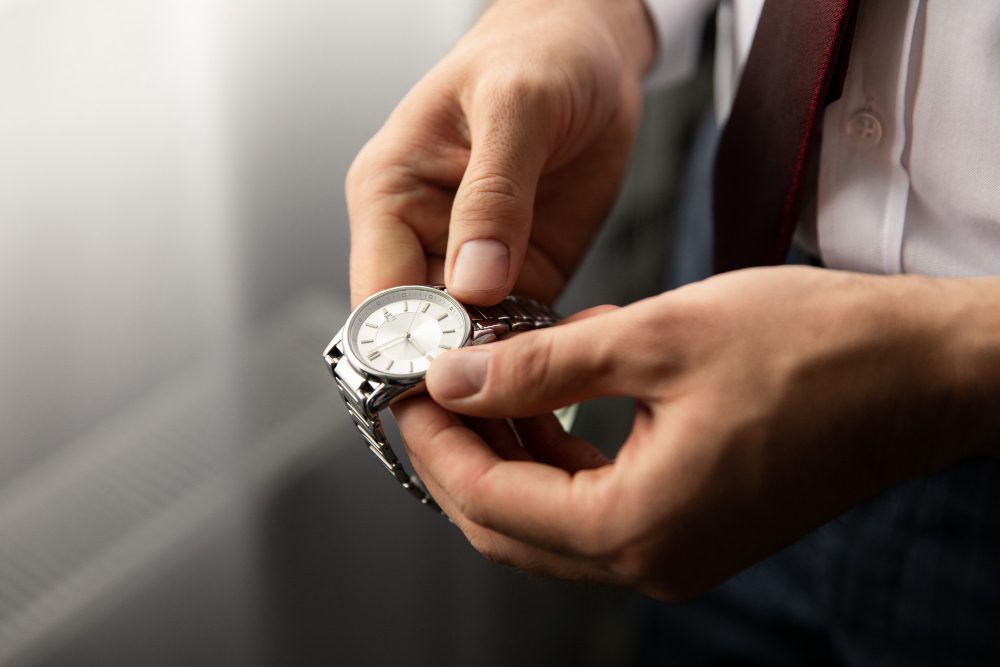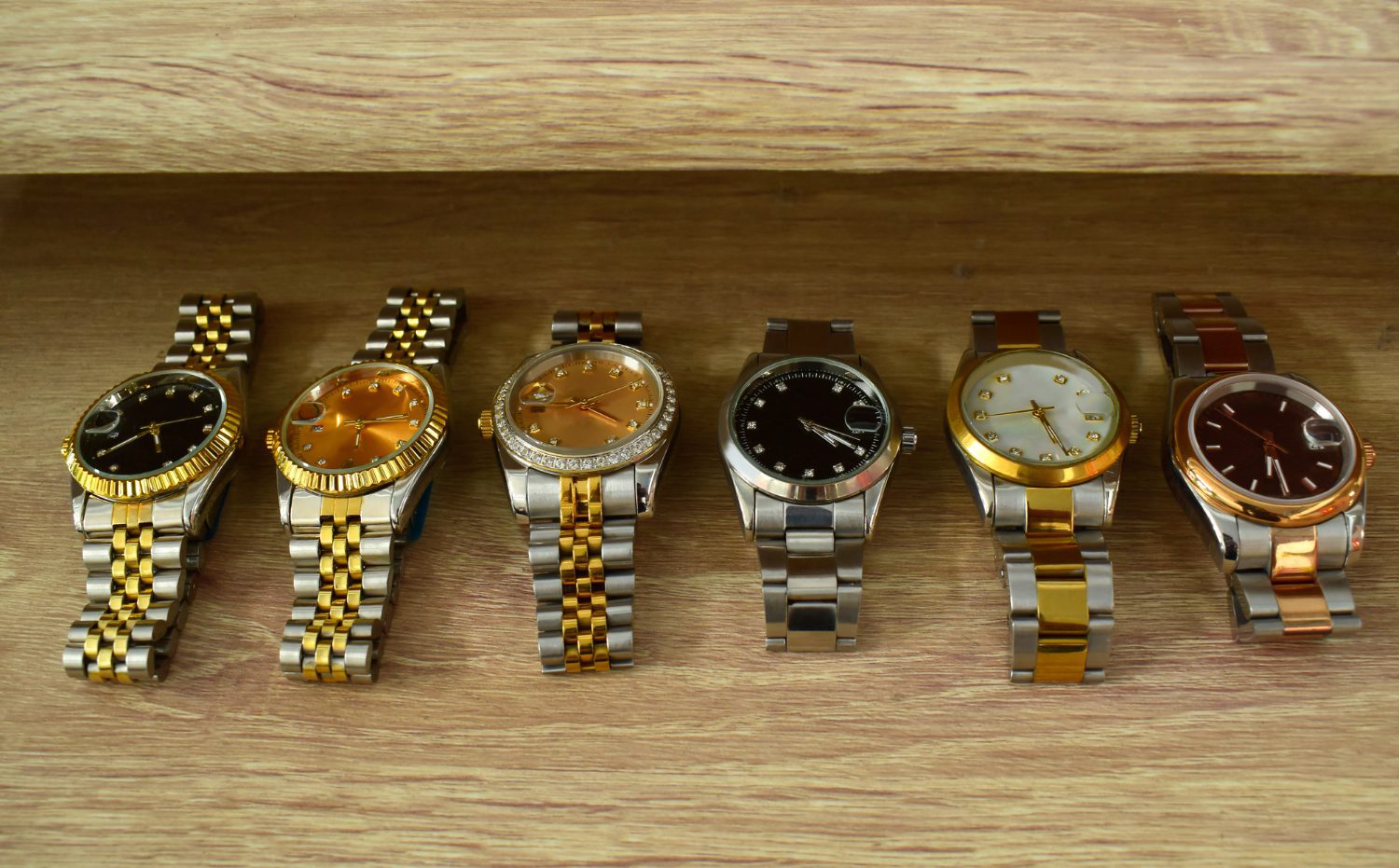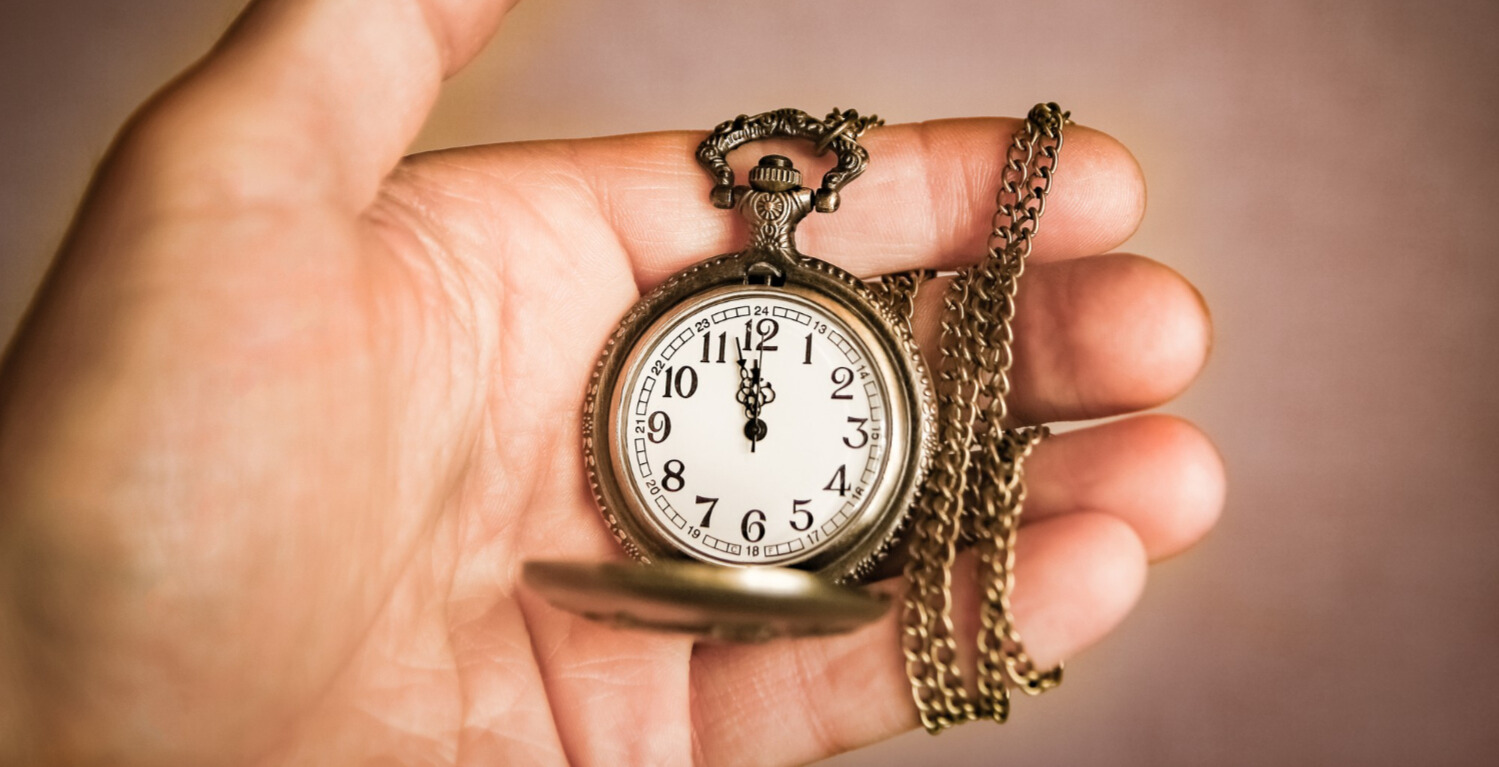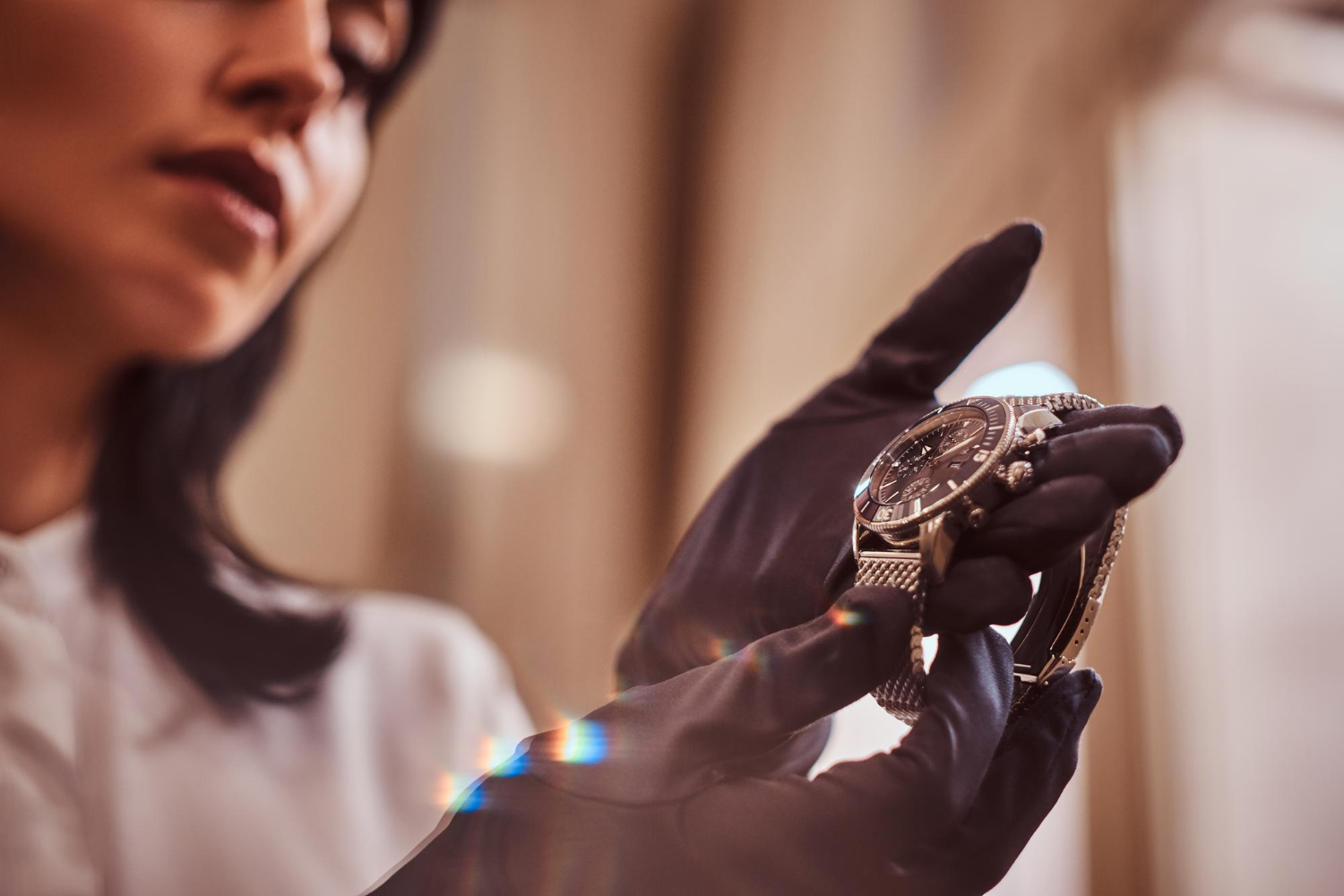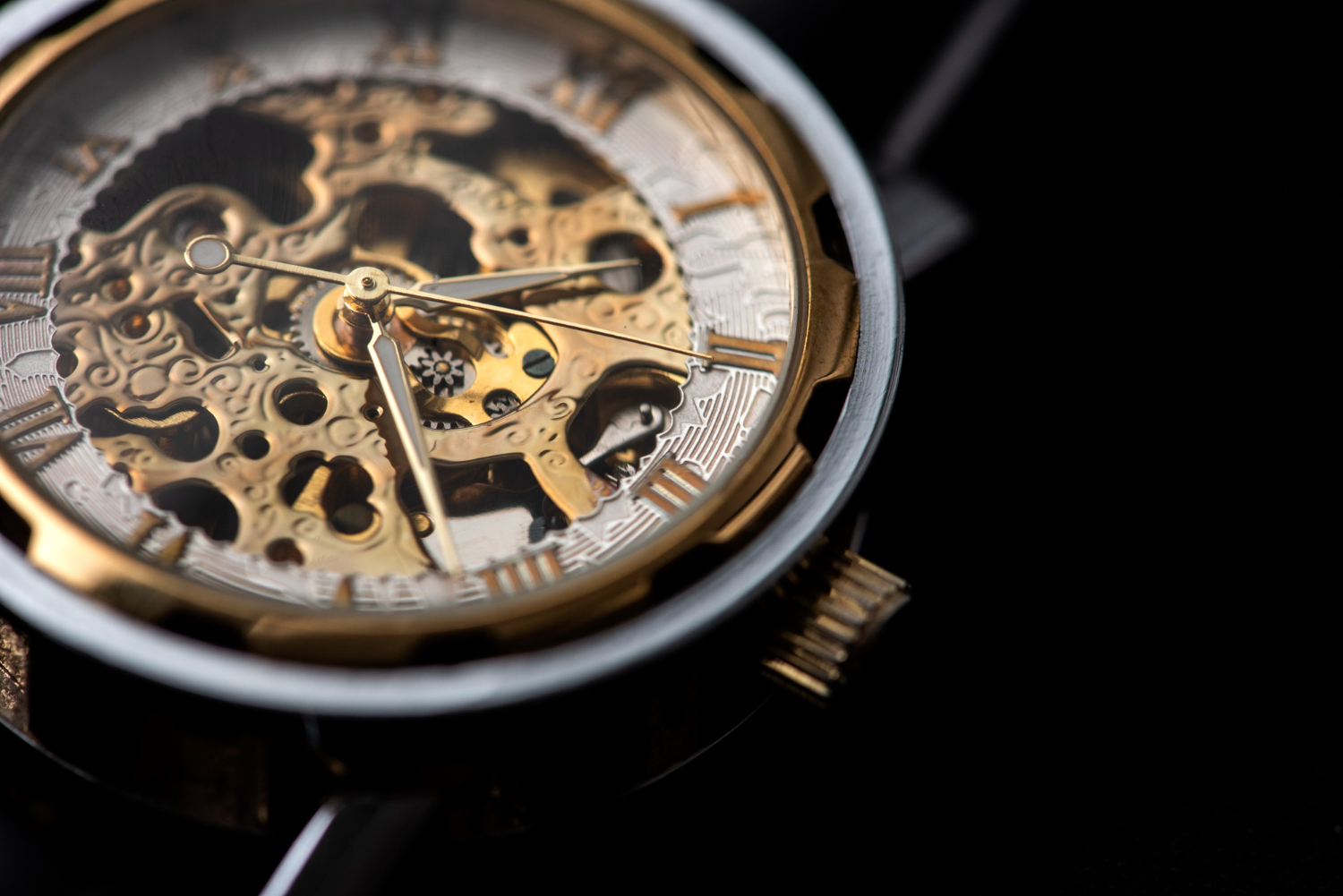For those passionate about fine vintage watches, attending auctions can be an exciting experience. Take the story of ‘Bob’, a collector from California who attended a live auction in New York to bid on a rare Rolex Submariner watch. After several rounds of bidding against competitors, Bob won the watch for £65,000 – triple its original estimated value.
This example illustrates how auction fever has impacted the vintage watch market and made it increasingly competitive for buyers and sellers alike. The growing interest in vintage watches has been reflected in recent years by rising attendance at both live and online auctions across the world. Collectors from all over are drawn to these events in search of rare pieces that they can add to their collections or resell for profit.
But what is driving such high demand? In this article, we will examine the factors that have caused auction fever to take hold of the watch market and explore how it affects pricing trends and appraisal values.
Understanding the Auction Process
To get the most out of your auction experience, it’s important to understand the process – from start to finish. Being familiar with auction etiquette and bid strategies can help you make informed decisions about when and how much to spend on a vintage watch.
Before entering an auction, research items you are interested in and familiarise yourself with the bidding increments for each item. At a live auction, be sure to arrive early so that you have time to inspect items up for sale before bidding starts.
It is also important not to become too emotionally attached or competitive as this can lead to overspending on an item. During the bidding process, remember that once your hand is raised no one else can bid higher; there is no chance of being outbid if you wait too long!
When it comes time for payment, be sure to review all invoices closely and pay promptly so that you don’t miss out on any potential discounts or offers due to late payments.
With a solid understanding of auction etiquette and bid strategies, buyers can ensure they secure their desired items at a price they’re comfortable with.
The Rise of Online Auctions
As the digital age takes over, the ‘auction fever’ is reaching a boiling point, with bidders from around the world competing for rare treasures in an ever-increasingly virtual arena.
Online auctions have become increasingly popular as they provide convenient access to potential buyers who may not be able to attend live auctions. With online auctions, users can take advantage of auction psychology and apply strategies such as sniping or shill bidding to score some of their desired items from the comfort of their own homes. Moreover, these virtual bidding platforms provide greater protection for both buyers and sellers due to secure payment systems and seller feedback ratings.
The rise of online auctions has also provided a more cost-effective way for vintage watch collectors to purchase rare timepieces without having to travel long distances or pay high premiums at traditional auction houses. This accessibility has allowed even novice collectors to get involved in the market at minimal cost, creating fierce competition for vintage watches that once would have been unaffordable by many enthusiasts.
As this trend continues, it remains unclear how live auctions will react in order to stay competitive with online counterparts.
The Benefits of Attending Live Auctions
Attending live auctions can be a thrilling experience, giving you the chance to get up close and personal with unique items that you wouldn’t find anywhere else! It’s easy to become swept away in the excitement of bidding on rare vintage watches, but having a few bidding strategies and auction etiquette tips can help ensure your experience is successful.
With an understanding of these two components, you’ll have greater confidence as you enter into the fast-paced world of live auctions.
Before attending any auction, it’s important to research the item(s) you wish to bid on. You should know what the typical market value is for those items so that when it comes time for bidding, you won’t overpay or feel taken advantage of.
During the actual auction event, make sure to read all descriptions carefully; ask questions if needed; and pay close attention to other bidders’ behaviour. Being aware of your surroundings will allow you to have a better understanding of how bids are being placed and when to jump in with one yourself.
Additionally, knowing proper auction etiquette is essential for success — such as being respectful towards other bidders, following rules set by the house, and signalling bids properly — in order for everyone involved in the process to have a positive experience.
Factors that Influence Watch Prices
You’re sure to find unique items at a live auction, but it’s important to know how factors like condition and age can affect the price of a watch.
Watchmaker reputation plays an especially important role in determining the value of a vintage watch. Luxury brands, such as Rolex or Patek Philippe, are highly sought after and can fetch prices far higher than watches by lesser-known manufacturers.
Each watch must also be evaluated carefully based on its condition. The older and more worn out the piece is, the less valuable it may be. However, some rare pieces that show signs of wear may still sell for a high price due to their rarity or historical significance.
It is important to remember that even though certain factors can influence watch prices, market trends in the watch industry will often dictate what buyers are willing to pay for any given item. Therefore, keeping an eye on current trends and understanding popular demand can help buyers determine if they should bid more or less on a particular piece at auction.
Market Trends in the Watch Industry
The watch industry is booming, with recent studies showing that nearly 75% of adults now own at least one timepiece.
Luxury brands are a driving force in this trend, as they signal quality and timelessness to buyers.
In addition, the history of watchmaking also plays an important role in the development of market trends. As collectors seek out vintage watches for their collections, auction houses have become more popular for those looking to add rare pieces to their collections.
This has created a surge in demand for these items, pushing prices higher and creating new market trends.
Buyer confidence is key when it comes to successful auctions and maintaining current market trends. With so much demand for vintage watches, buyers can be confident that investing in them will provide long-term returns due to their collectability and potential appreciation value.
Auctions also offer transparency in pricing data which allows buyers to make informed decisions when investing in certain pieces or brands.
Ultimately, this drives up prices further as bidders compete against each other for desired items.
Moving forward, understanding these market trends is essential for anyone looking to invest in vintage watches or participate in auction activities.
The Impact of Buyer Confidence
You’ve just reviewed the market trends in the watch industry, and now let’s take a look at how buyer confidence impacts auction fever.
Auction psychology is incredibly complex and involves a number of factors that influence a buyer’s decisions. Buyer psychology is an important component when analysing the effects vintage watch auctions have on the market. It’s essential to consider what triggers buyers to purchase a particular item and how their opinions about it can shape future prices.
The amount of trust buyers have in an auction house or seller influences their willingness to spend money on an item which, in turn, affects overall prices within the market. If bidders are confident that they are receiving quality merchandise from a reliable source, then they will be more likely to make higher bids with greater frequency.
This creates competition among other interested parties who may not want to miss out on owning the piece of history being auctioned off. Understanding this dynamic can help inform strategies for predicting where certain watches might go at various auctions throughout the year.
Understanding Watch Collecting Terminology
Collecting watches is a complex process, and it’s important to understand the terminology associated with it. For example, watch collectors need to be aware of discounting strategies used by dealers and different supply sources for vintage watches.
The availability of a certain model can depend on many factors including the desirability of its design, age, condition and rarity. Knowing what to look for in each category is essential for getting the most out of any auction experience.
The watch-collecting world also has its own specialised language that can be intimidating at first. Terms like ‘lug width,’ ‘calibre,’ ‘bezel’ and ‘dial’ are all common terms used when describing the features of vintage watches.
It’s important to familiarise yourself with these terms before entering an auction arena so you can accurately assess the value of a particular piece. Without this knowledge, you could end up overpaying or missing out on a great deal altogether.
Moving forward, appraisals will play an important role in understanding what drives values in auctions and how they impact the market as a whole.
The Role of Appraisals
Appraising a watch can make the difference between making an informed purchase and succumbing to bidding fever, ultimately altering its worth in the larger market.
An accurate appraisal is essential to assessing the value of vintage timepieces, as it provides an objective opinion on the condition and authenticity of a watch. Appraisers are experts in authentication, utilising various techniques such as magnification and movement checks to verify any evidence that may suggest a piece has been altered or tampered with.
They also conduct visual inspections to confirm original parts have not been replaced, confirming that all components bear the hallmarks of their respective manufacturer. Appraisal accuracy is paramount for both buyers and sellers alike as it ensures each party receives fair market value for their investment.
In addition to ensuring appraisal accuracy, authenticity checks must also be conducted by third-party professionals prior to auctioning off any pieces. Authentication entails reviewing serial numbers and case marks while also comparing watches side by side with known genuine models from the same era or brand.
This process provides collectors with peace of mind when participating in auctions as it helps guarantee that what they are investing their money into is indeed authentic. When appraisals and authenticity checks are taken seriously, buyers can rest assured knowing they have purchased a quality item at a fair price without succumbing to bidding fever or being deceived by counterfeit merchandise.
The Impact of Media Coverage
You’ve seen how appraisals help set the value of vintage watches, but it’s also important to consider the impact that media coverage has on auction fever.
From branding strategies to media outreach, how a watch is presented to potential buyers can have a significant effect on its desirability and thus its market price.
Media outlets such as newspapers and magazines often cover vintage watch auctions in order to inform their readers about popular trends or interesting stories related to the sale of certain timepieces.
By highlighting certain aspects of a particular watch, they can help create an aura of exclusivity and desirability around it – something that will often drive up prices at auction.
Moreover, when celebrities or other high-profile figures are associated with a particular type of watch, this also helps boost interest from prospective buyers – driving up demand and ultimately having an influence on final sale prices.
Understanding the role these factors play in influencing auction fever is essential for collectors looking for the best deal possible.
Understanding the Role of Auction Houses
By attending auctions and working with experienced auctioneers, you can get a better understanding of the factors that are driving up prices on certain pieces – so you can be sure to snag a great deal.
Auction houses play an important role in vintage watch auctions, setting regulations and fees for buyers and sellers alike. Understanding the rules and regulations set by these organisations is key when participating in auctions, as it’ll help ensure your bids are compliant with any restrictions imposed by the auction house.
Furthermore, understanding how auction houses calculate their fees is also important. These fees vary from one organisation to another but generally include both buyer’s premiums (which are fees paid by buyers) and seller’s commissions (paid by sellers).
Knowing these fees will help you budget appropriately for your purchases or sales at auction. Additionally, some auction houses may provide additional services like appraisals or shipping assistance which could impact the overall cost of participation in an auction.
By familiarising yourself with the different roles of an auction house before entering a bidding war, you’ll be able to make more informed decisions throughout the process.
You’ve seen the big impact that vintage watch auctions have had on the market, and it’s clear that they are here to stay. Whether you’re looking to buy or sell, understanding the auction process is key.
From live auctions and appraisals to media coverage, many factors go into determining prices and trends in watch collecting. It’s important to understand terminology, research current market trends, and know your rights as a buyer or seller – all of which will help you make informed decisions when participating in an auction.

